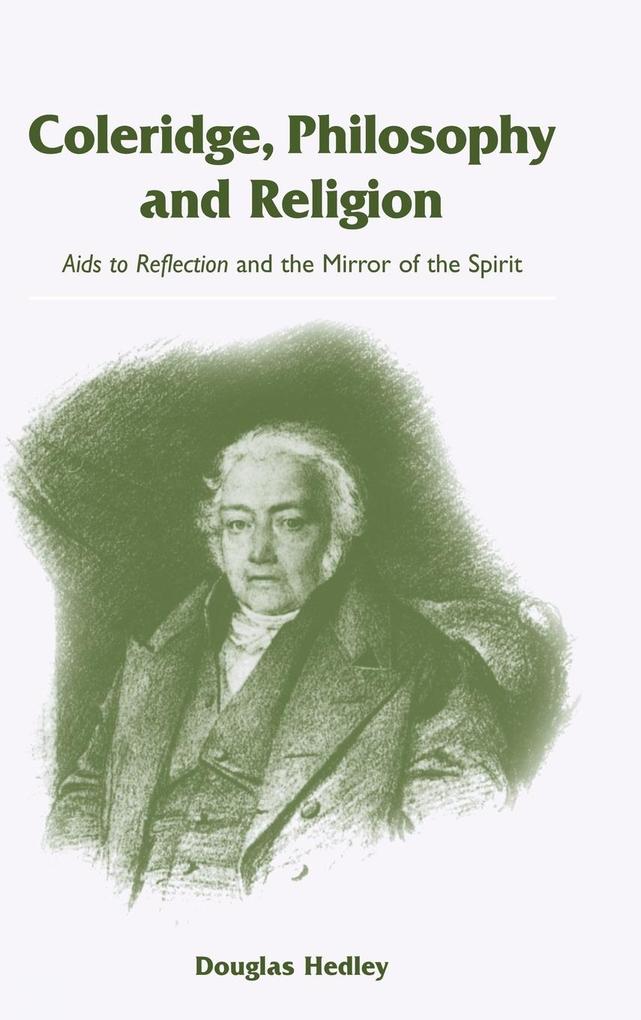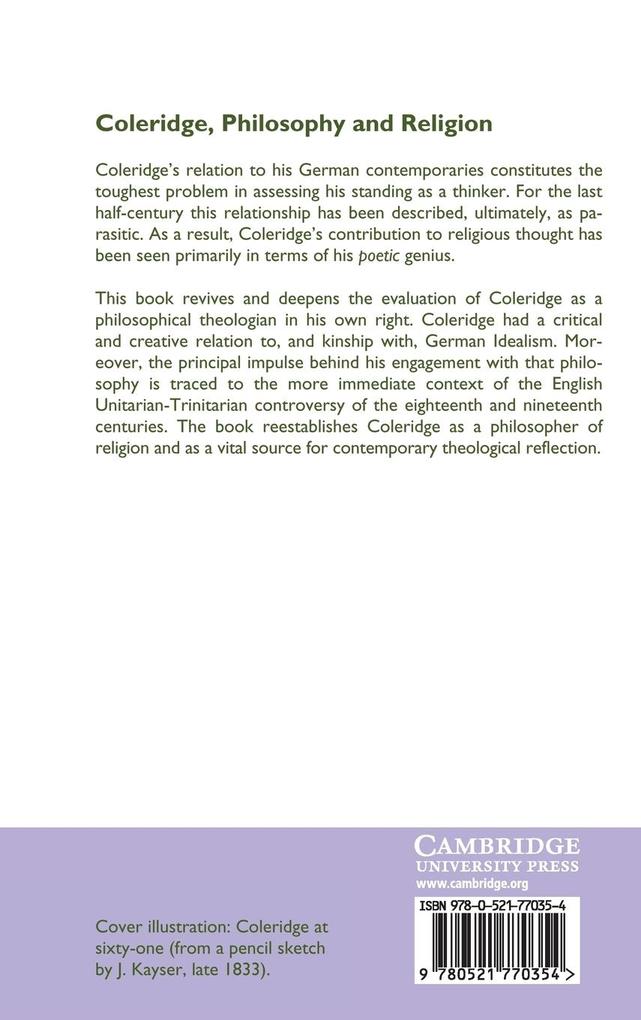Coleridge's relation to his German contemporaries constitutes the toughest problem in assessing his standing as a thinker. For the last half-century this relationship has been described, ultimately, as parasitic. As a result, Coleridge's contribution to religious thought has been seen primarily in terms of his poetic genius. This book revives and deepens the evaluation of Coleridge as a philosophical theologian in his own right. Coleridge had a critical and creative relation to, and kinship with, German Idealism. Moreover, the principal impulse behind his engagement with that philosophy is traced to the more immediate context of English Unitarian-Trinitarian controversy of the eighteenth and nineteenth centuries. The book re-establishes Coleridge as a philosopher of religion and as a vital source for contemporary theological reflection.
Inhaltsverzeichnis
Prologue: explaining Coleridge's explanation; 1. The true philosopher is the lover of God; 2. Inner word: reflection as meditation; 3. The image of God: reflection as imitating the divine spirit Prudence; 4. God is truth: the faculty of reflection or human understanding in relation to the divine Reason; 5. The great instauration: reflection as the renewal of the soul; 6. The vision of God: reflection culture, and the seed of a deiform nature; Epilogue: the candle of the Lord and Coleridge's legacy; Bibliography; Index.











